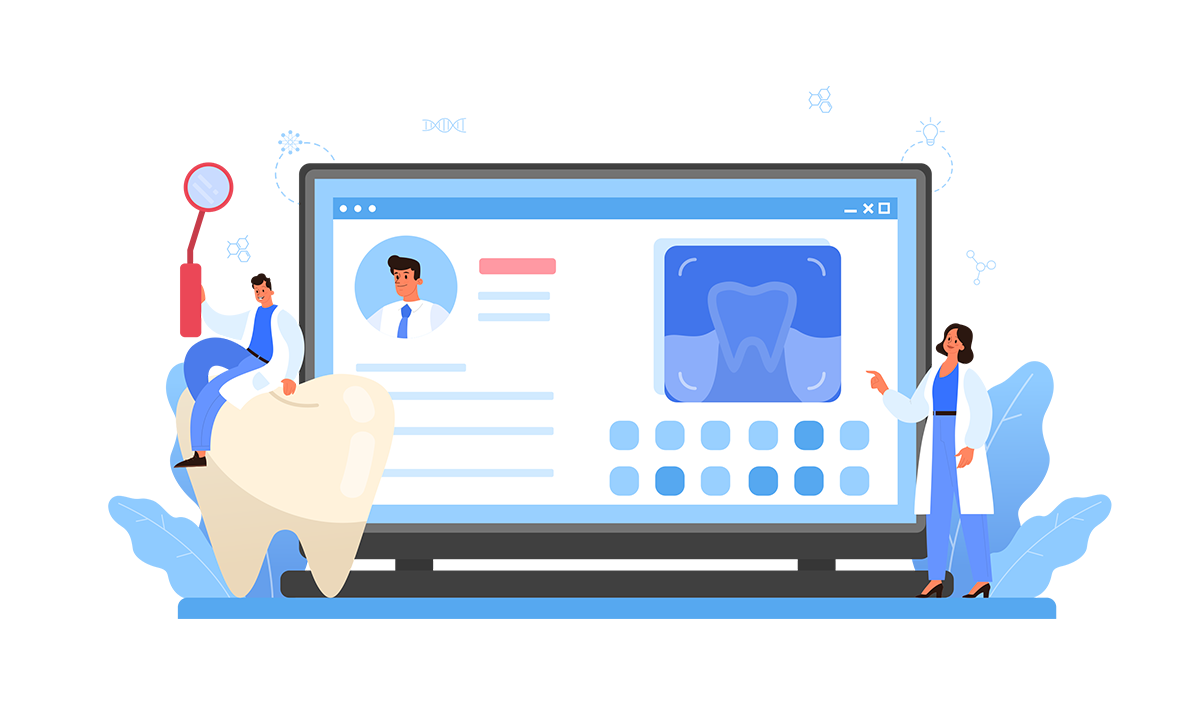This Course Structure is Curated as per the NEP-2020 Guidelines
Course Overview
The M.Sc. in Digital Dentistry is a 2-year postgraduate program designed to provide advanced expertise in cutting-edge digital dental technologies, including CAD/CAM workflows, 3D printing, AI-driven diagnostics, and virtual patient simulations. This program integrates traditional dental sciences with innovative digital tools, equipping graduates with the skills needed for modern dental practice, research, and industry applications. Through a combination of theoretical knowledge, practical training, and research opportunities, students will develop a comprehensive understanding of digital dentistry and its transformative impact on patient care.
The curriculum covers key areas such as:
Advanced Dental Anatomy and Occlusion – In-depth study of tooth morphology, occlusal dynamics, and their integration into digital prosthetics and orthodontic applications.
Advanced Dental Materials Science & Biomaterials – Exploration of next-generation ceramics, polymers, and hybrid biomaterials for digital restorations and prosthetics.
Advanced CAD/CAM Technology in Dentistry – Mastery of computer-aided design and manufacturing for complex dental prostheses, implant-supported restorations, and full-mouth rehabilitations.
3D Printing & Additive Manufacturing in Dentistry – Hands-on training in resin printing, metal sintering, and hybrid additive techniques for customized dental applications.
Digital Smile Design & AI in Dentistry – Application of artificial intelligence, digital imaging, and aesthetic analysis for personalized treatment planning.
Intraoral Scanning & Virtual Articulation – Advanced training in high-precision digital impressions, virtual occlusal simulations, and patient-specific dental workflows.
Augmented & Virtual Reality in Dentistry – Integration of VR/AR technologies for dental training, patient education, and surgical simulations.
Implant Planning & Guided Surgery – Utilization of CBCT imaging, AI-driven implant planning, and 3D-printed surgical guides for minimally invasive procedures.
Robotics & Automation in Dentistry – Exploration of robot-assisted dental surgeries, AI-driven diagnostics, and automated prosthetic fabrication.
Digital Orthodontics & Clear Aligners – Designing and fabricating customized aligners, 3D-printed retainers, and AI-assisted bracket positioning.
Ethics, Regulations & Quality Assurance in Digital Dentistry – Compliance with international regulatory frameworks, data security, and quality assurance in digital dental practice.
Internships & Industry Collaborations – Hands-on exposure through clinical rotations, research partnerships, and industry-led digital dental technology projects.
Capstone Research & Thesis – Focused research in AI-driven diagnostics, digital prosthetics, biomaterials, or novel CAD/CAM workflows, culminating in a thesis and potential publication.

Course Details
Description: 2 Years Degree Program
No. of Seats: 20
No. of Credits: 80 minimum & as specified
- Eligibility
- Curriculum Structure
- Program Outcomes
- Career Enhancement
- Higher Studies
- Job Roles & Progression
Academic Qualification: A Bachelor’s degree in B.Sc. Life Sciences, BDS, MBBS, or equivalent with at least 50% aggregate marks from a recognized university.
| Semester | Courses |
|---|---|
| Semester I | Basic in Digital Dentistry Dental Anatomy Preclinical Restorative Dentistry Preclinical Prosthodontics Minor Course 1 Minor Course 2 Research Presentation and Scientific Writing Skills Basics in Grantsmanship |
| Semester II | Digital Imaging in Radiology CAD/CAM Technology Virtual & Augmented Reality in Dentistry 3D Printing in Dentistry Integrating Digital Workflow AI & Machine Learning in Dental Diagnostics Industry Exposure |
| Semesters III & IV | Experimental Work in Digital Dentistry Innovations Capstone Research Project (Proposal & Literature Review) Dissertation – Final Work, Thesis Writing & Submission Research Presentation & Publication |
PLO1 (Comprehend): Understand advanced principles of digital dentistry, biomaterials, and prosthodontic design in specialized clinical and research workflows.
PLO2 (Analyze & Apply): Assess and apply CAD/CAM technology, 3D printing, AI-driven diagnostics, and robotic automation for customized dental prostheses and guided surgeries.
PLO3 (Evaluate & Innovate): Conduct evidence-based research, developing novel methodologies and optimizing digital workflows for improved patient outcomes.
PLO4 (Demonstrate): Operate intraoral scanners, digital articulators, milling systems, and advanced 3D printing technologies with precision.
PLO5 (Develop & Execute): Implement AI-based treatment planning, virtual patient simulations, and computer-assisted dental surgeries to enhance clinical efficiency.
PLO6 (Collaborate & Lead): Work effectively with clinicians, researchers, and dental technologists to drive advancements in digital dentistry.
PLO7 (Exhibit Ethical Practice): Ensure compliance with regulatory guidelines, data security protocols, and quality assurance measures in digital workflows.
PLO8 (Innovate & Contribute): Engage in entrepreneurial and research-driven initiatives, contributing to cutting-edge digital dental solutions and industry growth.
Dental Biomaterials & Research – Contribute to the development of advanced biomaterials for digital restorations, prosthetics, and tissue engineering.
Digital Orthodontics & Clear Aligner Design – Specialize in 3D-printed aligners, orthodontic simulations, and AI-driven digital treatment planning.
AI & Machine Learning in Dentistry – Develop AI-powered diagnostic tools, predictive analytics, and automated treatment planning systems.
Implant Planning & Surgical Navigation – Work with CBCT-guided implant placement, digital surgical guides, and robotic-assisted dental procedures.
Academia & Higher Education – Pursue Ph.D. studies, research fellowships, or teaching roles in digital dentistry, prosthodontics, or AI-driven healthcare.
Entrepreneurship & Startups – Launch digital dental labs, AI-driven diagnostic platforms, or innovative dental technology companies.
- Ph.D. in Digital Dentistry: Research opportunities in digital workflows, AI in dentistry, and advanced dental materials.
- Postgraduate Diploma in Dental Technology Innovation: Specialized program focusing on technological advancements in dentistry.
- M.Sc. in Dental Biomaterials: Advanced study of materials used in digital prosthetics and restorative dentistry.
- M.B.A. in Healthcare Management with Dental Technology Focus: Leadership training integrating business management and advanced dental technology.
|
Duration |
Roles and Responsibilities |
Salary Range |
|
0-3 years |
Digital Dental Technician, CAD/CAM Specialist, Dental Imaging Consultant |
₹5,00,000 – ₹8,00,000 per annum |
|
3-5 years |
Senior Digital Dental Specialist, CBCT Analyst, Digital Workflow Manager |
₹8,00,000 – ₹12,00,000 per annum |
|
5-10 years |
Clinical Digital Dentistry Manager, 3D Printing Specialist, AI Consultant in Dentistry |
₹12,00,000 – ₹18,00,000 per annum |
|
10+ years |
Director of Digital Dentistry, Chief Dental Technology Officer, Consultant in Advanced Digital Dentistry |
₹18,00,000+ per annum |

Fee Structure Per Academic Year
| Tuition Fee | Miscellaneous Fee | Scholarship | ||
| 150000 ₹ | 10000 ₹ | Above 90% – 30000 ₹ | Between 81-90% – 15000 ₹ | Between 71-80% – 7500 ₹ |



